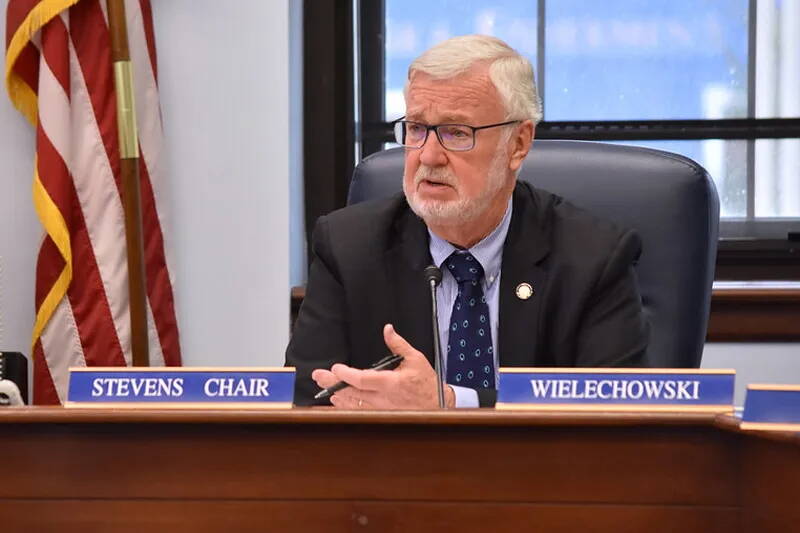It’s almost been a year since the state Senate unanimously passed a bill that, as Sen. Gary Stevens (R-Kodiak) explains, is aimed at restoring “attention to the importance of civics education in our schools” while “steadying civic engagement within our country” in the years to come. While I agree that doing so is vital to democracy’s future, getting there won’t be accomplished by quietly tolerating the name calling, bullying, and insistence on personal loyalty that’s currently poisoning our governing institutions and the public square.
SB 29 contains the same language that was included in an education bill debated by the House earlier in the session. I critiqued the proposal in February before it was removed from the version which was overwhelmingly passed by the legislature then vetoed by Gov. Mike Dunleavy.
Now I want to challenge wise leaders like Stevens to take a principled stand for restoring civic virtues to the politics of today.
“While most Americans agree on the importance of preparing young people for citizenship in a democracy,” he wrote in his sponsor’s statement, “civics education has received diminishing attention in schools over the past couple of decades.” After describing some of the reasons for that decline, he casually refers to the “present day political climate” and notes “many are calling for a return to civility.”
Civics and civility and inseparable. They’re both derived from the Latin word civis, which means citizen. Together, they describe the respectful manner in which individuals and groups interact with each other.
In Donald Trump’s playbook, that’s a sign of weakness.
Trump didn’t create today’s problematic political climate without help. But in pursuit of the nation’s highest office, he has and continues to exacerbate the problem.
I recently quoted former Secretary of Defense James Mattis regarding the leadership flaws he observed while serving under Trump. It’s worth repeating here.
“Donald Trump is the first president in my lifetime who does not try to unite the American people — does not even pretend to try. Instead, he tries to divide us.”
As a career professor of history, Stevens knows what happens when national leaders pit citizens of their country against each other. It’s fair to argue the deliberate effort described by Mattis has a distinctly de-Americanizing effect.
Some have taken it to the next level — dehumanization.
According to the news agency Reuters, there were 213 separate cases of political violence between the Jan. 6 attack on the U.S. Capitol and July 2023. Approximately two-thirds were physical assaults, with 39 of those resulting in one or more deaths.
The basis of civics education described in SB 29 schools won’t do anything to mitigate the immediate threat of further uncivilized behavior. Neither will the advice of the politically diverse set of scholars who, with funding partly from the U.S. Department of Education under Secretary Betsy DeVos, published “Educating for American Democracy” in March 2021.
“Civic education is less about learning answers to a set of contested and contestable questions than about learning to disagree well with one’s fellow citizens,” they wrote. They go on to describe two civic virtues which “are essential to sustaining a constructive and healthy political order.”
One is civil disagreement, which they define as “engaging in debate with a commitment to honesty, trustworthiness, charitable interpretation, and moving forward together.” It includes using “reasonable speech and writing when criticizing views or policies we oppose” while focusing “on the substance of the contending views and on the evidence undergirding them.”
Civic friendship is the idea “that we should all regard one another as fellow Americans capable of sharing ideals, principles, and constitutional forms of self-government even as we vigorously debate our philosophical or policy differences.”
Students who witness firsthand how Trump’s formula resulted in his third straight party nomination for the presidency will find those concepts are politically useless. And if he becomes president again, the students who follow are apt to believe that in the pursuit of power, the ends justify the means.
With the best of intentions, Stevens is seeking to create a future political environment that respects the statesman like qualities he brought to the legislature during his decades of service. Before he leaves the Senate next year, he should passionately defend his legacy by positively declaring Trump’s political tactics go well beyond the bounds of acceptable civic behavior and morality.
• Rich Moniak is a Juneau resident and retired civil engineer with more than 25 years of experience working in the public sector. Columns, My Turns and Letters to the Editor represent the view of the author, not the view of the Juneau Empire. Have something to say? Here’s how to submit a My Turn or letter.

